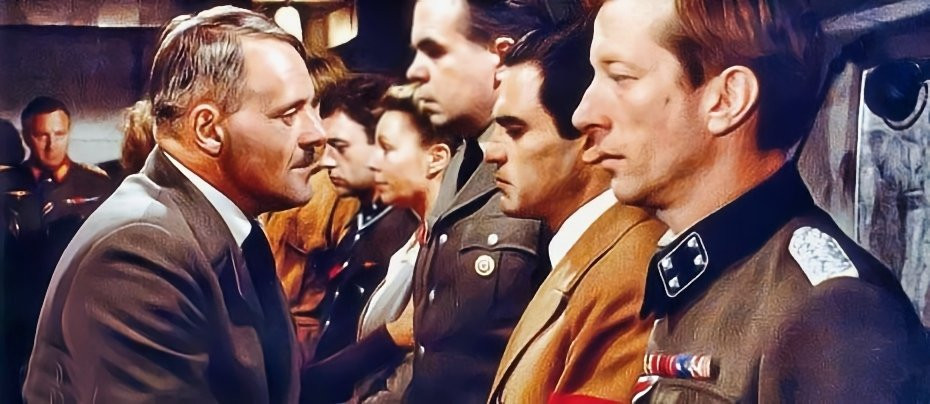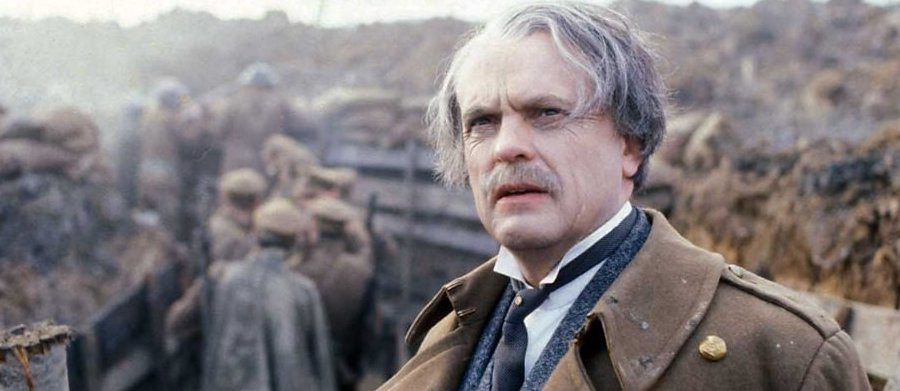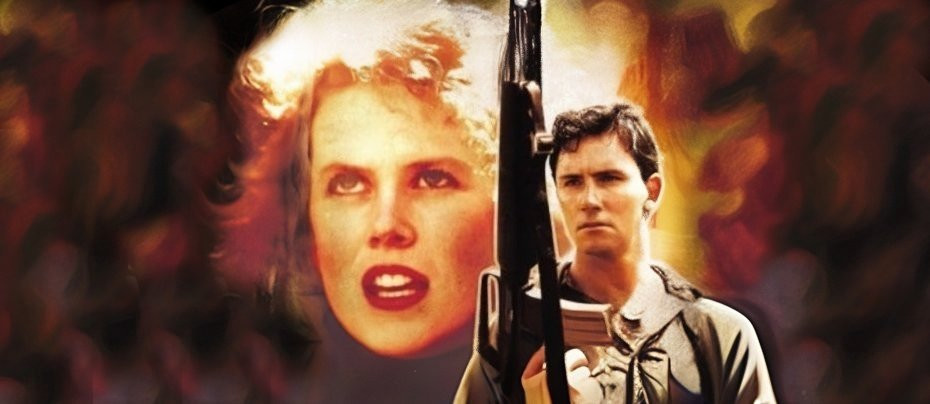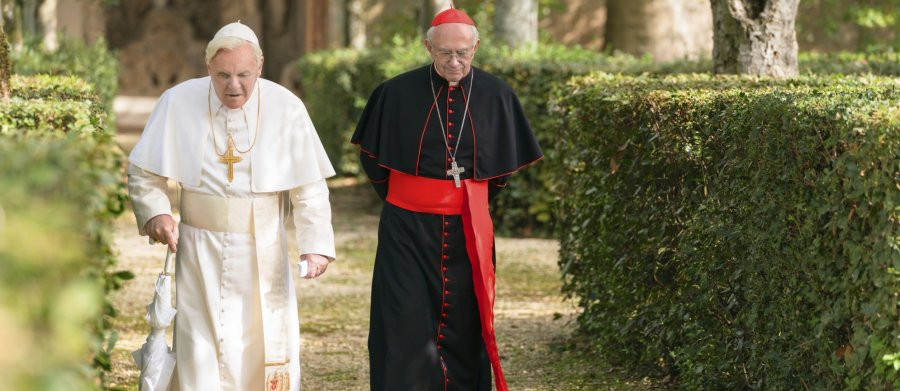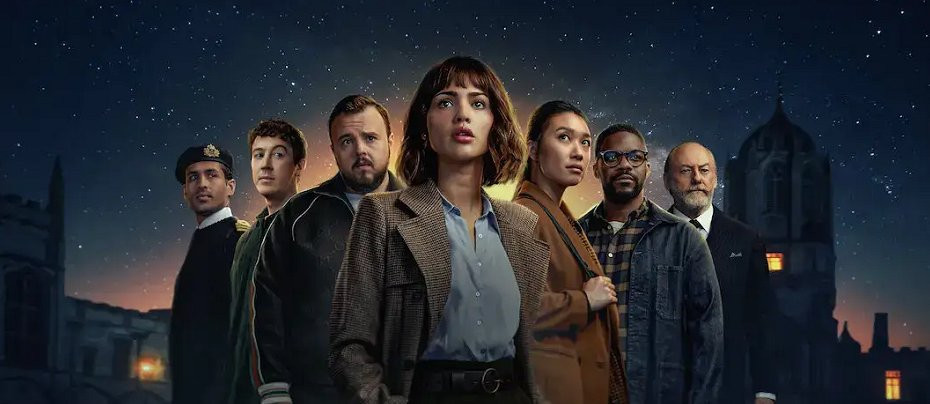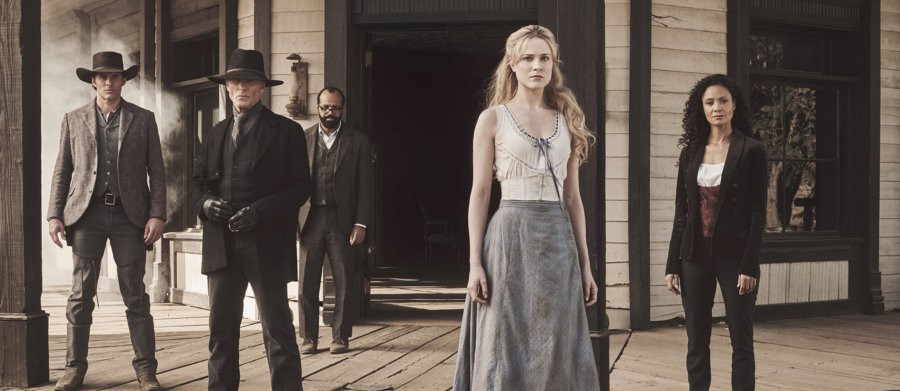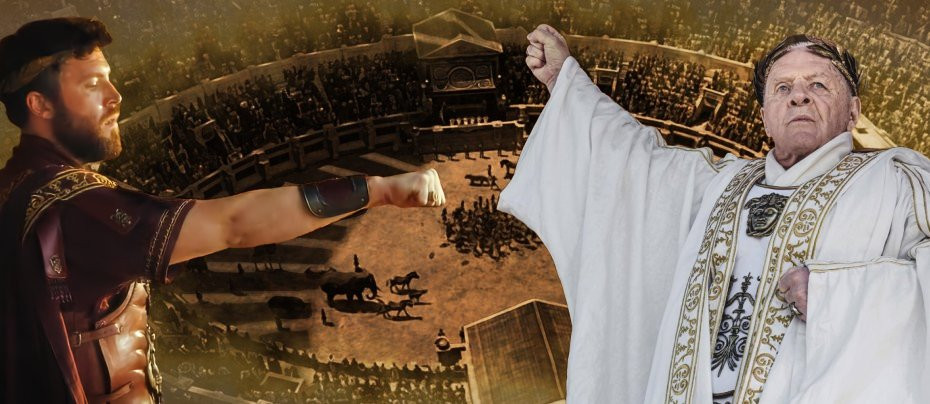
Those About to Die
2024 - United StatesReview: John Winterson Richards (August 2024)
Despite a $150 million budget, a big A-List name in front of the camera and another behind it, and, if TikTok is to be believed, half the population being obsessed with the Roman Empire, Amazon dropped Those About to Die with surprisingly little fanfare - especially compared with the hype that is being built around the similarly themed feature film Gladiator II due for release later this year. Both professional critics and audiences were underwhelmed.
It deserved better - even if it must be acknowledged that it failed to make the most of its full potential and one can understand at least some of the reasons why it was not the big hit it might otherwise have been.
Set in Rome in the later First Century AD, the story follows the interrelationships between three families at very different levels in the Imperial social system and the streetwise chancer, Tenax, whose desire to get ahead in that system impacts on all of them. The latter is played by Iwan Rheon, best known as the sadistic Ramsay Bolton in Game of Thrones, so we know exactly what to expect of him. Indeed, from the very first scene in which he is introduced, he is absolutely ruthless in doing what he has to do. "Rise or die" is his motto and he lives up to it. Only gradually do we realise that he is not a sadist or a psychopath: there are reasons for what he does and why he is as he is, and, very slowly, a more sentimental side is revealed. He is a fascinating protagonist, a well drawn character well played, and part of the weakness of the production is that its focus is not on him as much as it should be.
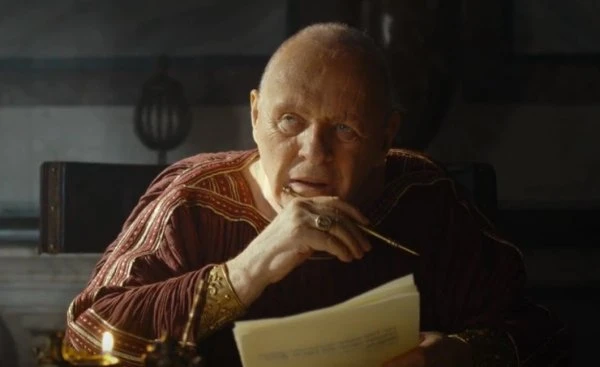
At the very top of the system in which he hopes to rise is the Princeps or Emperor Vespasian. A man of relatively obscure birth who enjoyed a successful career as a soldier before seizing power - mainly by being at the right place at the right time with a loyal army - he proved one of Rome's best rulers (he also makes an appearance in Masada where he is played by Timothy West). Here he appears at the very end of his life, declining visibly but still capable of bursts of his old power and wit that remind everyone who is in charge. The great Sir Anthony Hopkins brings his master's touch to the role, and, although he only has few scenes that do not really justify his prominent place in the publicity, it is no surprise that he makes those scenes count.
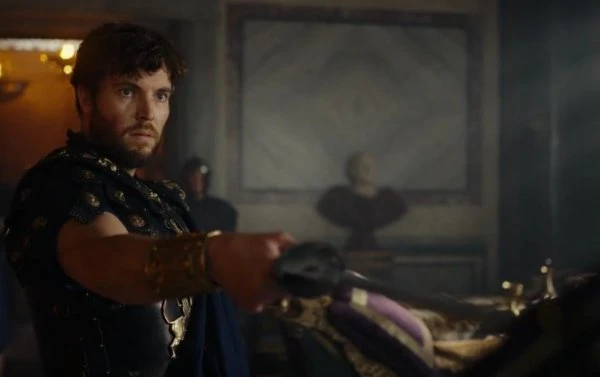
Tom Hughes is historically credible as the Emperor's eldest son, Titus, and if the same cannot be said of his scheming younger brother, Domitian, as played with relish by Jojo Macari, he is nevertheless very entertaining. Modern historians tend to take a more sympathetic view of Domitian than his contemporaries did, but then he did execute a lot of the latter.
At the very bottom of the pile, two sisters and their brother, Kwane (Moe Hashim), are enslaved illegally in Africa, and their hard-headed mother Cala (Sara Martins from Death in Paradise) follows them to Rome to free them. Meanwhile, three freeborn but poor brothers arrive from Spain with horses to sell to the chariot "factions" of the Circus Maximus - basically the equivalents of modern football clubs in their wealth and the fanaticism of their supporters.
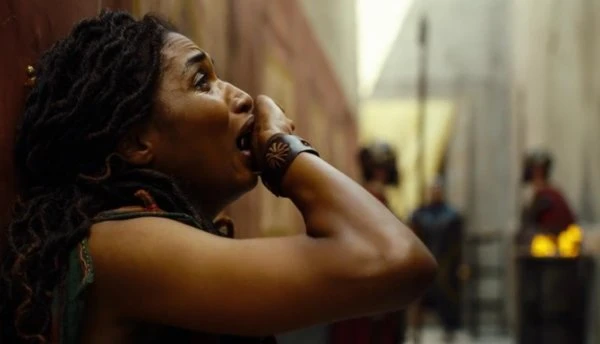
Rupert Penry-Jones is good as an aristocrat who resents the upstart Flavians - Vespasian and his new Dynasty - but nevertheless demonstrates true nobility when the occasion demands. In much the same way, his wife Antonia (Gabriella Pession), who is initially an obvious villain, becomes surprisingly sympathetic in the end. Johannes Haukur Johannesson (Game of Thrones) is a likeable gladiator whom Kwane befriends - no prizes for guessing where this ends. Dimitri Leonidas is Scorpus, a celebrity charioteer who seems to have a genuine, if rather edgy, friendship with Tenax. He is based on a real life figure who was active slightly later.
In another example of how barriers are breaking down in the entertainment industry, the first division feature film director Roland Emmerich served as Executive Producer of the project and directed five episodes personally. He brings his love of big screen computer generated imagery (CGI) to the small screen very effectively. Of course it is very obviously CGI, but we are now used to that and accept it as such, especially since much of it is top level CGI.
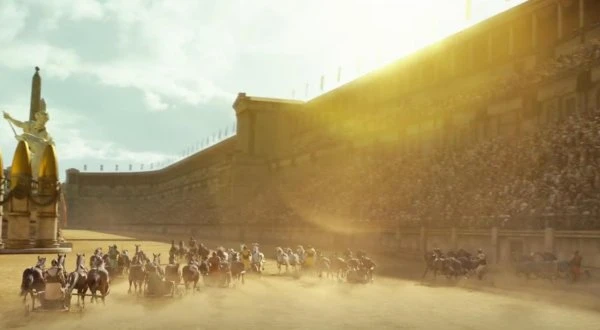
The best of it, including the commendably accurate cityscapes of Rome, the chariot races in the Circus Maximus, and the famous Inaugural Games of the Flavian Amphitheatre, better known as the Colosseum, is as cinematic as Emmerich's famous disaster movies. There are many individual shots that look like minor works of art in their own right. However, this cannot be sustained over ten hours on a television budget, and the fact that the CGI is so good in some places only serves to emphasise when it is not in other places. The use of a green screen backdrop sometimes looks like something out of the 1950s.
Could that be deliberate? One of the most enjoyable aspects of the production is how it references the history of the genre. It is only to be expected that the chariot racing draws heavily on William Wyler's Ben Hur, right down to individual shots. There are also learned borrowings from Stanley Kubrick's Spartacus, especially the great scene in which gladiators nervously waiting their turn catch glimpses of the fight that precedes them. The cheap and cheerful television Spartacus: Blood and Sand also seems to be an influence, as is HBO's highly esteemed Rome, which it follows in its clever blending of splendour and squalor. It is no surprise that much of the filming took place at the Cinecittà studios in Rome, where Rome and many other Roman themed "Sword and Sandal" or peplum projects were made. The sets, costumes, and organisational memory there must have been a big help.
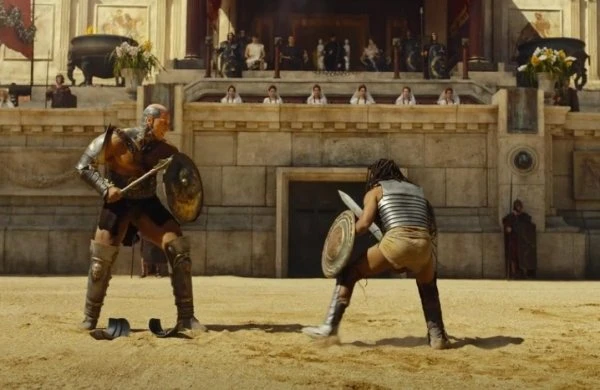
As is usually the case, there is greater respect for historical accuracy in the design departments than in the script, but it has to be acknowledged that the writers do seem to have opened a few history books on this occasion - a rarity in recent historical drama. At least there are some clever references to the details of events of the time in the dialogue, but, as with the CGI, the effort that has gone into getting some things right only draws attention to failures elsewhere. Getting the full names of both Titus and Domitian wrong so as to imply that they were adopted, when the whole point was that they were not, is especially grating.
So are the current Hollywood fashions. We know what we are going to get when the opening titles tell us tell us that it is "79 CE" rather than AD. Of course, the Romans themselves, knowing nothing of AD or CE, would have said 832 AUC, but either way we know that where we really are is 2024. From there it is only to be expected that we get the predictable anachronistic feminism and heavy handed "representation," as well as the equally predictable unnecessarily graphic sex and violence. Yes, the irony of complaining about too much sex and violence in a drama set in Ancient Rome is duly appreciated.
Even more irritating is the problem it has with pacing. The set pieces, especially the chariot races, are exciting, but they seem to be in the wrong places. There is little sense of how much time is passing: characters go from novices to champions very abruptly. Yet a season of ten episodes still feels too long. The main storyline is compelling but it is padded with too many less interesting subplots. The energy level drops noticeably when the story switches from the plotting of Tenax, Cala, and Domitian to the dull juvenile leads. The tenth episode ends setting up a second season which has yet to be confirmed at the time of writing, despite Emmerich being quoted in the last few days as optimistic. There is certainly enough raw material here for another season, but it needs to build on what works and cut out the rest.
Seen this show? How do you rate it?
Seen this show? How do you rate it?
Published on August 22nd, 2024. Written by John Winterson Richards for Television Heaven.


